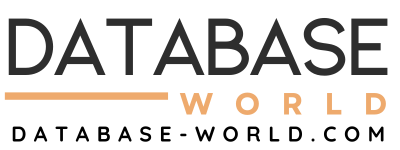In today’s digital age, databases play a pivotal role in managing and leveraging information across various sectors. As businesses and organizations increasingly rely on data to drive decision-making, the global database market has experienced significant growth and transformation. This article explores the current state of the global database market, highlighting key trends, challenges, and opportunities.
Current Market Overview
The global database market encompasses a wide range of products and services, including database management systems (DBMS), cloud databases, and data warehousing solutions. According to industry reports, the market has been expanding rapidly, driven by the proliferation of data and the growing need for efficient data management solutions. This growth is fueled by several factors:
1. Increasing Data Volume
The explosion of data generated by digital interactions, social media, IoT devices, and business operations has led to a surge in demand for robust database solutions. Organizations are seeking ways to store, process, and analyze massive volumes of data to gain actionable insights and stay competitive.
2. Cloud Adoption
Cloud computing has revolutionized the database market by providing scalable, flexible, and cost-effective solutions. Cloud databases offer benefits such as reduced infrastructure costs, improved accessibility, and enhanced scalability. Major cloud service providers, including Amazon Web Services (AWS), Microsoft Azure, and Google Cloud Platform, have been expanding their database offerings to meet growing demand.
3. Data Privacy and Security
With increasing concerns about data breaches and privacy violations, there is a heightened focus on database security. Organizations are investing in advanced security measures, including encryption, access controls, and compliance with data protection regulations like GDPR and CCPA. Ensuring data security is crucial for maintaining trust and meeting regulatory requirements.
4. Emergence of Big Data and Analytics
The rise of big data and advanced analytics has transformed how organizations use databases. Big data technologies, such as Hadoop and Apache Spark, enable the processing and analysis of large datasets. Data analytics tools provide valuable insights that drive business strategy and operational efficiency.
Key Trends
1. Rise of NoSQL Databases
NoSQL databases, which offer flexibility and scalability for handling unstructured data, have gained popularity. These databases, including MongoDB, Cassandra, and Couchbase, are designed to handle large volumes of diverse data types and are often used in modern web applications, real-time analytics, and big data projects.
2. Increased Focus on Data Integration
As organizations use multiple data sources and applications, integrating data from various systems becomes essential. Data integration tools and platforms, such as ETL (Extract, Transform, Load) solutions and data virtualization technologies, help organizations unify their data for comprehensive analysis and decision-making.
3. Growth of Database-as-a-Service (DBaaS)
Database-as-a-Service (DBaaS) is becoming increasingly popular as it allows businesses to outsource database management to cloud providers. DBaaS offers benefits such as automatic updates, maintenance, and scalability without the need for on-premises infrastructure.
4. Artificial Intelligence and Machine Learning
Artificial Intelligence (AI) and Machine Learning (ML) are making their mark on the database market. AI-driven databases can automate routine tasks, optimize performance, and provide predictive analytics. ML algorithms are used to analyze data patterns and improve decision-making processes.
Challenges
1. Data Management Complexity
Managing large and diverse datasets presents significant challenges. Organizations must ensure data quality, consistency, and integration across various systems. Complex data architectures and the need for real-time processing add to the complexity of database management.
2. Cost of Database Solutions
While cloud databases offer cost benefits, the overall expense of database solutions, including licensing, storage, and data transfer costs, can be substantial. Organizations must carefully evaluate their database needs and choose cost-effective solutions that align with their budget.
3. Evolving Technology Landscape
The rapid pace of technological advancements means that organizations must stay updated with the latest database technologies and trends. Adopting new technologies requires investment in training and infrastructure, which can be a barrier for some businesses.
Opportunities
1. Expansion of Database Market Segments
The database market offers opportunities across various segments, including relational databases, NoSQL databases, cloud databases, and specialized databases for industries such as healthcare, finance, and retail. Companies can explore niche markets and vertical-specific solutions to capture new business opportunities.
2. Innovation in Data Management
Innovation in data management technologies, such as real-time analytics, data lakes, and edge computing, presents opportunities for businesses to enhance their data capabilities. Investing in innovative solutions can lead to improved data insights and competitive advantages.
3. Increasing Demand for Data-driven Decision Making
As organizations increasingly rely on data-driven decision-making, the demand for advanced database solutions and analytics tools continues to grow. Businesses that can provide cutting-edge database technologies and services will be well-positioned to meet this demand.
Conclusion
The global database market is dynamic and rapidly evolving, driven by the increasing volume of data, cloud adoption, and advancements in technology. While challenges such as data management complexity and cost persist, there are abundant opportunities for growth and innovation. By staying informed about market trends and investing in the latest database technologies, organizations can harness the power of data to drive their success and achieve their business objectives.
At database-world.com, we are committed to providing comprehensive information and solutions for the global database market. Explore our resources to stay updated on the latest trends, technologies, and opportunities in the world of databases.


